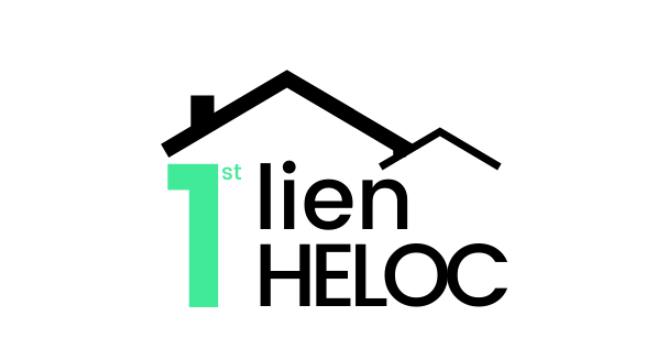
For those who have accumulated significant wealth and want to explore more advanced investment opportunities, becoming a qualified investor is a crucial step.
This status opens up access to exclusive investment vehicles that can provide higher returns, though they often come with increased risk.
But what exactly does it mean to be a qualified investor, and what types of opportunities become available at this level?
In this guide, we’ll break down the requirements for becoming a qualified investor and explore the types of investment opportunities reserved for those who achieve this status.
What Does It Mean to Be a Qualified Investor?

A qualified investor (often referred to as an accredited investor) is an individual or entity that meets specific income, net worth, or professional requirements, allowing them to participate in investment opportunities that are typically off-limits to the general public.
These opportunities are often considered higher risk and are therefore regulated to ensure that only investors with a certain level of financial sophistication and ability to absorb potential losses can participate.
Requirements for Becoming a Qualified Investor

The qualifications for becoming a qualified investor are set by the Securities and Exchange Commission (SEC). To meet the criteria, an individual must meet at least one of the following requirements:
- Income: Have an annual income of at least $200,000 (or $300,000 combined with a spouse) in each of the last two years, with the expectation of maintaining the same level of income.
- Net Worth: Have a net worth exceeding $1 million, either individually or jointly with a spouse, excluding the value of the primary residence.
- Professional Certifications: Hold certain professional certifications or designations such as a Series 7, 65, or 82 license, which demonstrates a sophisticated understanding of financial markets.
Meeting these qualifications enables you to access investment opportunities that aren’t available to the average investor.
Why Become a Qualified Investor?

The biggest advantage of becoming a qualified investor is gaining access to exclusive investment opportunities that can provide higher potential returns.
These investments are often in asset classes that offer more control, less liquidity, and more complexity than traditional stocks or bonds, but they also come with significant upside potential.
Some of the opportunities available to qualified investors include private equity, venture capital, hedge funds, and real estate syndications.
These investments can offer diversified returns outside the typical stock market, but they require a deeper understanding of financial risk and a higher tolerance for loss.
Types of Investment Opportunities for Qualified Investors

As a qualified investor, you can explore a variety of investment vehicles not available to the general public. Here are some of the most common and potentially lucrative opportunities:
1. Private Equity
Private equity involves investing directly in private companies, often through buyouts or venture capital funds.
These investments allow qualified investors to own a portion of a company that isn’t publicly traded, with the potential for substantial returns if the company grows or goes public.
Private equity funds typically have longer holding periods (5-10 years) but can offer significant returns upon exit.
- Key Benefits: Access to companies before they go public, potential for high returns.
- Risks: Lack of liquidity, long holding periods, and high minimum investment requirements.
2. Venture Capital
Venture capital involves investing in early-stage startups that are typically high-risk but have the potential for high rewards.
Qualified investors can participate in venture capital funds or invest directly in startups, allowing them to support innovative companies in sectors such as tech, healthcare, and renewable energy.
- Key Benefits: Potential for exponential growth, opportunity to invest in emerging markets or technologies.
- Risks: Extremely high risk of failure, illiquidity, and long-term investment horizons.
3. Hedge Funds
Hedge funds pool money from qualified investors to pursue aggressive investment strategies, often using leverage, derivatives, and short selling to maximize returns.
These funds may invest in a variety of assets, including stocks, bonds, real estate, and commodities, offering more flexibility than traditional mutual funds.
- Key Benefits: Ability to hedge against market downturns, access to diverse strategies.
- Risks: High fees, less transparency, and the potential for significant losses.
4. Real Estate Syndications and Private REITs
Qualified investors can participate in real estate syndications, which involve pooling resources with other investors to purchase large commercial properties or residential developments.
Unlike publicly traded Real Estate Investment Trusts (REITs), private REITs are not available on stock exchanges, providing direct exposure to real estate with potentially higher returns.
- Key Benefits: Diversification into real estate, potential for passive income, and long-term appreciation.
- Risks: Low liquidity, high minimum investment, and market volatility in the real estate sector.
5. Direct Investment in Startups
Qualified investors can also directly invest in startups through angel investing. This involves providing capital to a young company in exchange for equity, with the goal of supporting early-stage growth.
Angel investors often get in at the ground floor and can see outsized returns if the startup succeeds.
- Key Benefits: Potential for substantial returns if the company succeeds, equity stake in high-growth sectors.
- Risks: High failure rates, illiquidity, and long holding periods.
6. Private Debt
Private debt involves investing in non-publicly traded debt securities issued by companies or individuals.
These investments are often used to fund corporate acquisitions, real estate projects, or personal loans, providing qualified investors with an alternative income stream through interest payments.
- Key Benefits: Regular income from interest payments, typically higher returns than public bonds.
- Risks: Credit risk from borrowers, illiquidity, and the potential for default.
Benefits and Risks of Qualified Investments
While these opportunities can provide substantial returns, it’s essential to understand the associated risks.
Qualified investments tend to be less liquid than traditional investments, meaning you may not be able to easily sell or exit these investments when you need to.
Additionally, the potential for significant losses is higher, especially with early-stage companies or leveraged funds.
Key Benefits:
- Higher Potential Returns: These investments often outperform traditional markets.
- Access to Unique Investment Vehicles: Qualified investors gain access to private equity, hedge funds, and other exclusive opportunities.
- Portfolio Diversification: Qualified investments allow you to diversify beyond public stocks and bonds, potentially reducing overall portfolio risk.
Key Risks:
- Illiquidity: Many qualified investments require long holding periods, limiting your ability to access cash quickly.
- High Minimum Investment Requirements: These opportunities often require substantial capital to participate.
- Complexity: Qualified investments may require deeper financial knowledge and come with complex fee structures, making them more difficult to manage.
Unlocking New Opportunities as a Qualified Investor
Becoming a qualified investor opens the door to exclusive and potentially high-reward investment opportunities that aren’t available to the average investor.
While these opportunities come with increased risk and complexity, they offer the chance to diversify your portfolio, tap into early-stage companies, and potentially see substantial financial returns.
As with any investment, careful planning, understanding your risk tolerance, and consulting with a financial advisor can help you make informed decisions that support your long-term financial goals.
Ready to Leverage Your Financial Status?

One powerful tool for qualified investors is the First Lien HELOC, allowing you to unlock the equity in your home to fund advanced investments like private equity or real estate.
Try our First Lien HELOC calculator today and see how much equity you can access to take advantage of these exclusive investment opportunities!

